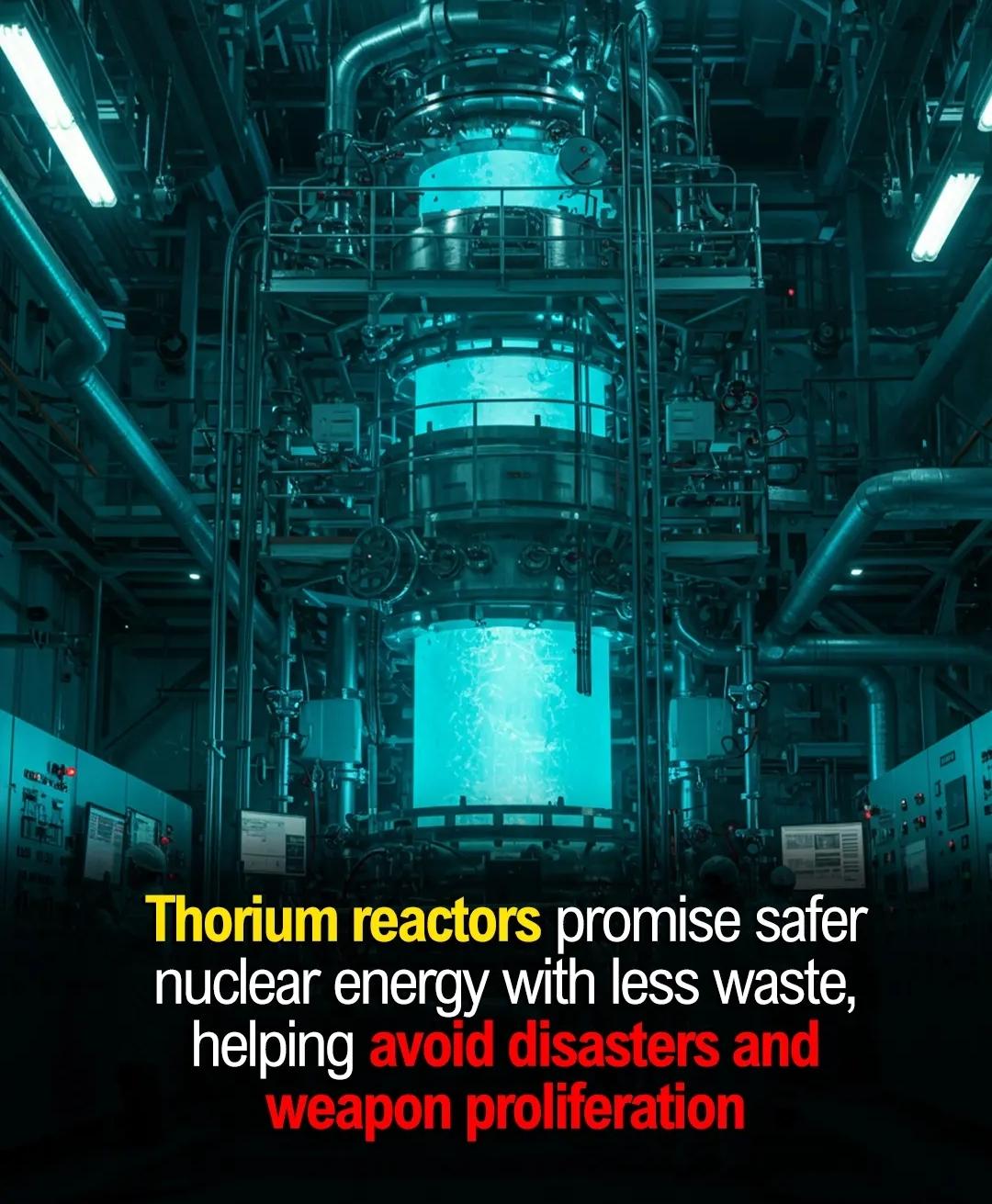Thorium, a lesser-known metal found in abundance around the world, might hold the key to safer, cleaner, and more efficient nuclear energy. Unlike uranium, which dominates today’s nuclear power industry, thorium doesn’t need intensive enrichment and is widely available in countries like India, Australia, and the U.S. This makes it a cost-effective and geopolitically stable energy source. Thorium reactors, especially liquid fluoride thorium reactors (LFTRs), operate at atmospheric pressure and have built-in safety systems that allow them to shut down on their own, making them far less prone to disasters like Chernobyl or Fukushima.
One of thorium's biggest advantages is its low nuclear waste output. Thorium reactors produce waste with shorter half-lives and can even help reduce existing plutonium stockpiles. Plus, thorium isn’t easily weaponized, reducing the risk of nuclear proliferation—an important factor for global security.
A single ton of thorium can generate as much energy as 200 tons of uranium or millions of tons of coal. Its high efficiency means less fuel, fewer emissions, and more sustainable energy production overall. But thorium isn’t without challenges—there’s little infrastructure for it yet, and investments are still catching up.
Still, thorium offers a new way forward. With global collaboration and smart policy, this unassuming metal could power a cleaner, safer future—if we choose to act on its promise soon.
One of thorium's biggest advantages is its low nuclear waste output. Thorium reactors produce waste with shorter half-lives and can even help reduce existing plutonium stockpiles. Plus, thorium isn’t easily weaponized, reducing the risk of nuclear proliferation—an important factor for global security.
A single ton of thorium can generate as much energy as 200 tons of uranium or millions of tons of coal. Its high efficiency means less fuel, fewer emissions, and more sustainable energy production overall. But thorium isn’t without challenges—there’s little infrastructure for it yet, and investments are still catching up.
Still, thorium offers a new way forward. With global collaboration and smart policy, this unassuming metal could power a cleaner, safer future—if we choose to act on its promise soon.
Thorium, a lesser-known metal found in abundance around the world, might hold the key to safer, cleaner, and more efficient nuclear energy. Unlike uranium, which dominates today’s nuclear power industry, thorium doesn’t need intensive enrichment and is widely available in countries like India, Australia, and the U.S. This makes it a cost-effective and geopolitically stable energy source. Thorium reactors, especially liquid fluoride thorium reactors (LFTRs), operate at atmospheric pressure and have built-in safety systems that allow them to shut down on their own, making them far less prone to disasters like Chernobyl or Fukushima.
One of thorium's biggest advantages is its low nuclear waste output. Thorium reactors produce waste with shorter half-lives and can even help reduce existing plutonium stockpiles. Plus, thorium isn’t easily weaponized, reducing the risk of nuclear proliferation—an important factor for global security.
A single ton of thorium can generate as much energy as 200 tons of uranium or millions of tons of coal. Its high efficiency means less fuel, fewer emissions, and more sustainable energy production overall. But thorium isn’t without challenges—there’s little infrastructure for it yet, and investments are still catching up.
Still, thorium offers a new way forward. With global collaboration and smart policy, this unassuming metal could power a cleaner, safer future—if we choose to act on its promise soon.




